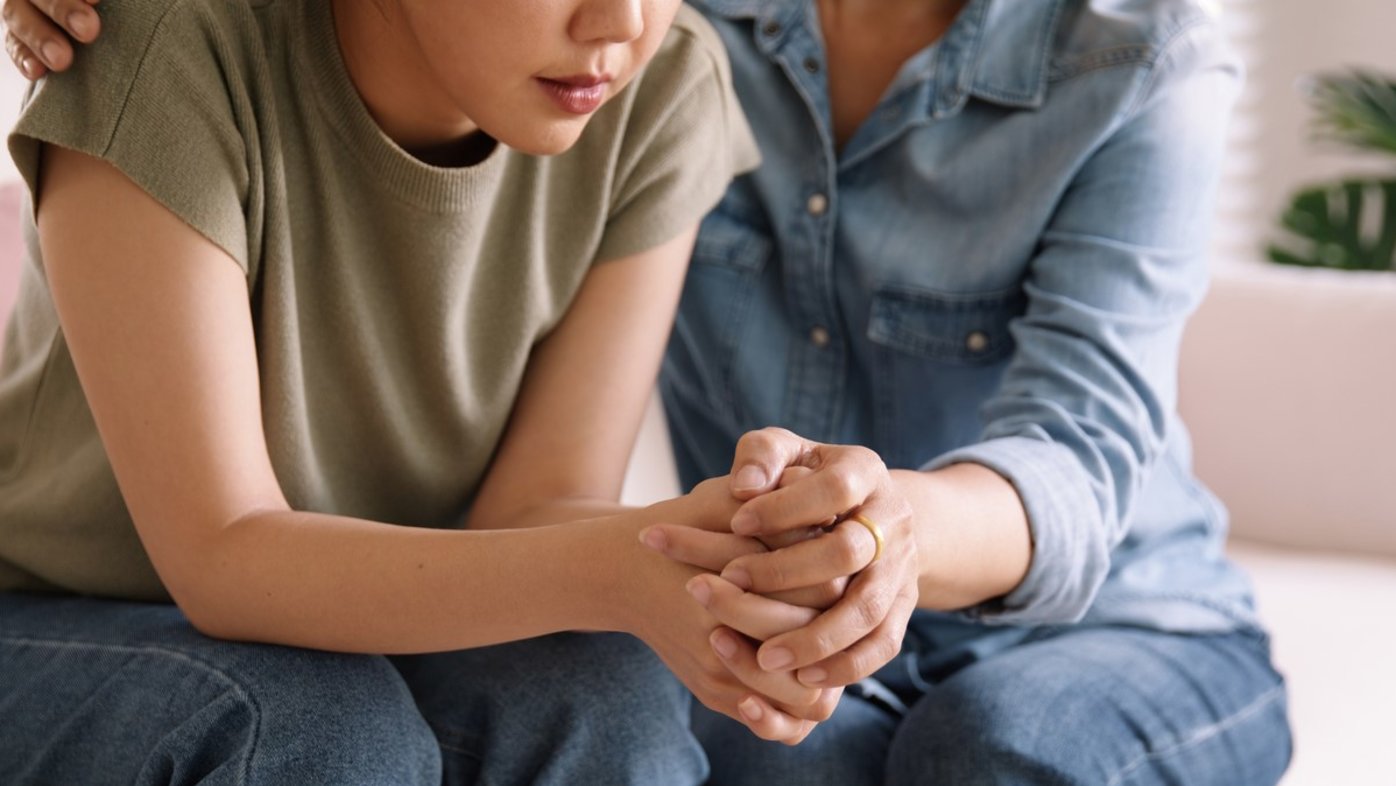
What is the difference between sadness and depression?
Feeling sad from time to time is normal. And while sadness eventually vanishes, depression is persistent.
By Jennifer Spengler, a health and wellness writer for Sharp Health News and a marketing specialist with Sharp HealthCare.
A few years ago, the eldest of our three daughters left for college and I thought my heart would both burst with pride and break in half. Responsible, intelligent and kind, she is the epitome of the classic firstborn. My husband and I didn't know how we would fare in her absence.
In just one year, our middle child — our sunny, funny girl — will be packing up and heading off to her future. And then there will be one — the wild, ebullient, precocious baby of the family who is capable of simultaneously keeping us young while causing the addition of more than a few gray hairs.
These events are momentous for our family. With each, I try to find a palatable mix of both sadness and celebration. But it isn't just myself I should be considering. My daughters play a central role in one another's lives and when a sibling moves away, changes both big and small are inevitable.
A change in the number of kids at home may lead to a change in family dynamics
When asked, my younger daughters will tell you that they really do miss their sister. My 17-year-old misses her confidante and companion. My 11-year-old misses the sister who is always up for an outdoor adventure or willing to watch a favorite superhero movie over and over. They feel her absence far more than I thought.
According to Dr. Kelsey Bradshaw, a clinical child psychologist at Sharp Mesa Vista's Child and Adolescent Unit, how children react to a sibling leaving the family home depends on a variety of factors — the type of relationship siblings have, age differences and family dynamics.
"Some children may be indifferent to a sibling leaving for college or moving out, especially if their brother or sister is staying local," Dr. Bradshaw says. "Other siblings may feel a real sense of loss. This may be especially true for siblings who are very close or when older siblings have taken more of a parenting role."
On the other hand, Dr. Bradshaw points out that if there is conflict among siblings, the added distance may be a welcome relief — both for the kids and parents alike. Furthermore, some younger siblings may benefit from extra parental focus. Although others may dread the increased scrutiny, especially if they are getting it due to their own behavior.
My younger girls will acknowledge that there are a few benefits to going from three to two kids in the house. The soon-to-be high school senior loves not having to share the family car. Our middle schooler clearly delights in the increased attention. Even I will admit that having to do the laundry of one less person is sort of nice.
Helping kids cope when a sibling moves away
In all circumstances, it's important to not assume that your child is coping effectively with a sibling's absence because they are not talking about it or appear to be fine, as children can be either external or more internal processors.
"It is vital to recognize that things are changing and that the dynamics at home may shift," Dr. Bradshaw says. "Parents should discuss this with each child. Begin with empathy and create an opportunity to listen."
Dr. Bradshaw offers these additional tips to help children cope when a sibling moves away:
Share how you feel about the changes in your household, which is a great way to help children build emotional intelligence.
Allow your child to share their reactions and feelings, being sure to validate their emotions.
Reflect on positive memories.
Discuss how your children will continue to keep in touch with their sibling, perhaps through an occasional phone call, text message or video call.
Keep younger siblings informed about when the older sibling is planning to come home for a visit.
Plan family events and activities when the older sibling is in town.
Schedule a family trip — or solo trip, if the younger sibling is old enough — to visit the older sibling.
Dr. Bradshaw also noted the importance of recognizing that the older sibling may be busy with their new endeavors and seek greater independence once they move out. It is important that all family members — both parents and siblings alike — respect that desire.
Through all the changes in my own household, I have been buoyed by my daughters' ability to remain close while adjusting to the new dynamic. My older girls stay connected through social media and we have a family group text that is updated almost daily with pet photos, funny stories and significant happenings. The two younger girls spend more time together than they did before, with our teen easily stepping into the role of responsible older sister, helping our youngest try to navigate middle school drama and driving the occasional carpool or cheering on the sidelines of her soccer games.
While I definitely miss my eldest and my heart tightens when I think about my other girls leaving, I recognize that our job as parents is to raise our children to become independent and build their own lives. I also recognize that it's a good thing kids can't take pets with them to college, because even if they don't want to travel home to see me, my husband or their siblings, I know my girls will always come back for the dog.
Jennifer Spengler is a health and wellness writer for Sharp Health News and a marketing specialist with Sharp HealthCare.
Our weekly email brings you the latest health tips, recipes and stories.